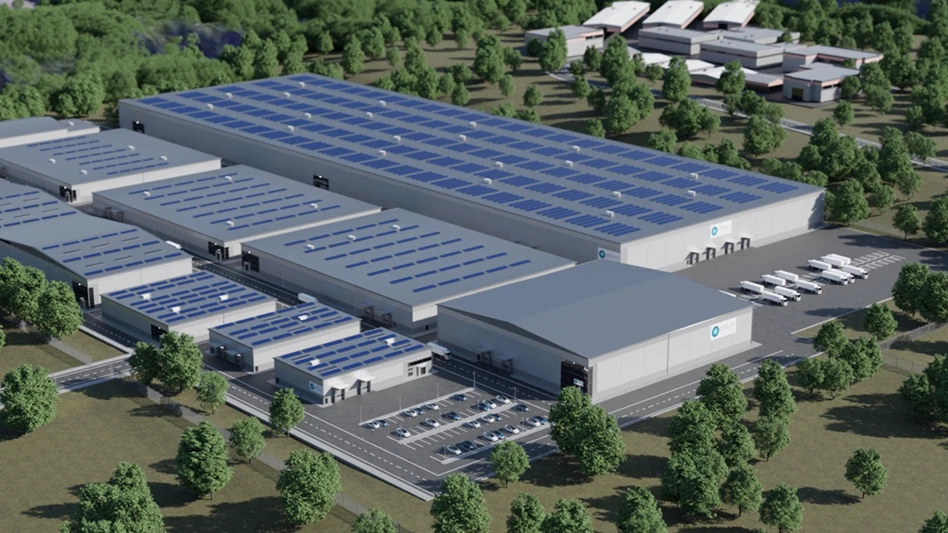
Image courtesy of Altlilium Metals
United Kingdom-based Altilium Metals has completed an engineering study demonstrating the feasibility of its planned commercial-scale black mass battery materials recycling plant in that country.
Altilium says the planned Teesside, England, facility is set to be the largest in the U.K. and possibly European region. It is being designed to process a mixed feedstock including lithium cobalt oxide (LCO) consumer scrap plus lithium-iron phosphate (LFP) and nickel-manganese-cobalt (NMC) old batteries and production scrap for an estimated output of up to 40,000 metric of black mass per year.
The planned Battery Recycling Station (BRS) will be located at Altilium’s existing ACT 4 recycling hub in Teesside and will supply feedstock for recycling and refining to precursor cathode active (pCAM) and CAM.
Altilium says its ACT4 recycling hub location benefits from nearby U.K. electric vehicle (EV) manufacturing plants, cell producers and “exceptional logistics," adding that the performance of ACT has reinforced its commitment to closing the loop on a U.K. battery supply chain.
The BRS facility will incorporate a wet shredding and robotics system, setting what Altilium calls a new benchmark for battery recycling safety and efficiency. As an alternative to dry shredding, wet processing uses water to cool materials and suppress fires, thus reducing the risk of thermal events.
The system also enables faster processing with higher throughput, reducing material to uniform sizes in a single pass, Altilium says, adding that wet shredding also captures black mass with greater purity, maximizing the recovery of valuable metals.
Altilium says the investment makes sense because the U.K. is poised to see a significant amount of scrap material available for battery recycling, driven by its position as the largest second-hand market in the EU and the rapid adoption of EVs.
An upcoming 2030 ban on new petrol and diesel cars in the U.K. means EV adoption is set to surge, leading to an increased volume of end-of-life batteries requiring recycling, the company says.
Additionally, manufacturing scrap from U.K. gigafactories is expected to be the primary source of recycling material throughout the 2020s, according to Altilium.
Altilium has been awarded funds under the U.K. government’s Innovate Launchpad: Net Zero, CR&D Tees Valley and R2 programs. The BSR plant has been designed in conjunction with Canada-based engineering and consulting firm Hatch Ltd.
Latest from Recycling Today
- BMW Group, Encory launch 'direct recycling’ of batteries
- Loom Carbon, RTI International partner to scale textile recycling technology
- Goodwill Industries of West Michigan, American Glass Mosaics partner to divert glass from landfill
- CARI forms federal advocacy partnership
- Monthly packaging papers shipments down in November
- STEEL Act aims to enhance trade enforcement to prevent dumping of steel in the US
- San Francisco schools introduce compostable lunch trays
- Aduro graduates from Shell GameChanger program





